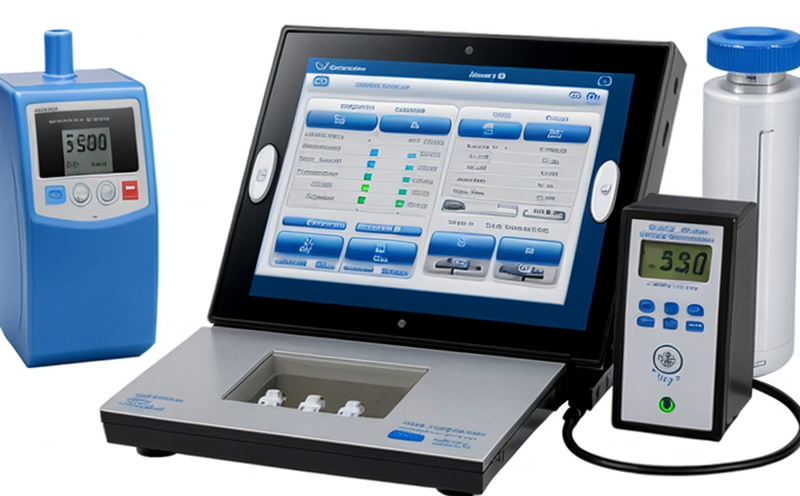ISO 11608-4 Electronic Injection System Safety Testing
The ISO 11608 series of standards is particularly relevant to the medical device industry, with ISO 11608-4 specifically addressing the safety testing of electronic injection systems used in infusion pumps and drug delivery devices. This standard ensures that these critical medical devices meet stringent safety requirements to protect patients from potential hazards during use.
The scope of ISO 11608-4 encompasses both static tests and dynamic performance assessments. Static tests are designed to evaluate the electrical characteristics, mechanical properties, and material stability under non-operational conditions. Dynamic testing focuses on the operational behavior of the device in simulated real-world scenarios, including drug delivery accuracy, response times, and user interface reliability.
For quality managers and compliance officers, this standard provides a roadmap for ensuring that devices comply with international safety regulations. R&D engineers can leverage ISO 11608-4 to design safer prototypes, while procurement teams can use these standards as criteria when selecting suppliers or materials. By adhering to these guidelines, organizations in the medical device sector can enhance their reputation and market competitiveness by delivering safe and reliable products.
The testing process for electronic injection systems involves a series of rigorous steps aimed at identifying potential risks associated with improper design, manufacturing defects, or operational malfunctions. Specimens are prepared according to specific protocols outlined in ISO 11608-4, ensuring consistency across various test environments. The instrumentation used includes specialized equipment capable of measuring electrical parameters, mechanical forces, and fluid dynamics.
The primary goal of the testing is to ensure that the infusion pump or drug delivery system operates safely and accurately within prescribed limits. This includes verifying the integrity of the electronic injection system under extreme conditions such as power surges, temperature fluctuations, and humidity variations. Reporting must be comprehensive, detailing any deviations from expected performance and recommending corrective actions.
Industry Applications:
- Infusion Pumps: Ensures safe delivery of chemotherapy drugs or pain management solutions.
- Insulin Pumps: Guarantees accurate insulin dosing, crucial for diabetic patients.
- Pediatric Devices: Protects vulnerable populations from potential risks associated with medical devices.
- Hospitals and Clinics: Enhances patient safety by reducing the likelihood of adverse events during treatment.
International Acceptance and Recognition:
- The American Society for Testing and Materials (ASTM) has adopted ISO 11608-4 as a reference standard in its own guidelines for electronic injection systems.
- The European Committee for Standardization (CEN) recognizes this standard, ensuring compliance with the requirements of the Medical Device Regulation (MDR).
- ISO 11608-4 is also referenced by Health Canada and the Food and Drug Administration (FDA), making it a global benchmark for safety testing.
The competitive advantage provided by ISO 11608-4 lies in its ability to enhance product reliability, reduce liability risks, and facilitate smoother market entry into international markets. By adhering to these standards, companies can demonstrate their commitment to quality and patient safety, thereby building trust with healthcare providers and patients alike.
Competitive Advantage and Market Impact:
The adoption of ISO 11608-4 in the design, development, and production stages ensures that medical device manufacturers meet or exceed regulatory requirements. This can lead to faster product approvals, reduced time-to-market, and improved customer satisfaction. Organizations that prioritize compliance with these standards are better positioned to navigate the complex landscape of global regulations and gain a competitive edge.
Frequently Asked Questions:





